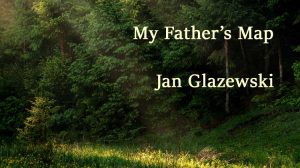
Our story begins in a scalding desert city, the aroma of burning nearby: burning salty corn the size of a pistol and burning garbage on the side of semi-paved country roads. Strangers minding their business while stealing glances as they secretly guess which line of ancestry my identity of tangled roots belongs to. I stroll through the familiar patch of Syrian landscape with my cousin Amar every night, unconsciously aware that the tainted amber stains in her eyes and the uneven curvature of her two front yellow teeth dimmed with each visit. The ground shrinking underneath my Sketchers, I struggle to breathe as my body begins to wake me up.
My nightmares are the only surviving bridge that I have left to my homeland. Ten years ago, I visited Aleppo for the last time. Since then, more than six million Syrians have been displaced and hundreds of thousands have been brutally murdered. Syria continues to bleed; she is unrecognizable, she has lost her scent. The freshly painted pistachio apartment we purchased the year prior to the revolution awaits our return. In our place, civilians we do not know, who lost everything to a Russian bomb, live uncomfortably in a home haunted by a family who was lucky enough to escape but unlucky enough to carry the eternal guilt and responsibility to compensate. Buried is our hope for a future where we thought we belonged, where we could be accepted and live side-by-side with our extended family in our ancient homeland. Syria, much like my family and I, was stuck between two worlds.
I shouldn’t be complaining though — I got out.
Amar is a side character in this story, but trust me, if you saw her in her prime, you’d cast her as the lead. She’s had it harder than me, and the toll was far more expensive than what she could pay. In Arabic, Amar is a moon — the gravity of her full love for me and for her country was unmatched. I envied her bravery and her indestructible sense of identity.
At night I close my eyes and dream of the distant echoes of my pestering cousins which blend in with the sounds of the gawking birds flying over the scarlet horizon. We crack open several hundred pumpkin seeds and litter their lifeless jackets on the playground next to the Mediterranean Sea. Suddenly, I hear the whizz of a bullet fly close to my ear and then a muffled scream. I turn around and the playground has aged and with it my cousins, they stare at me longingly, as I stand alive, selfish, and entitled. I still do not know why it is that I would end up here in the United States, a second-generation Syrian American and the daughter of Muslim immigrants, instead of in a land where speaking your mind and standing your ground is to dig your own grave. Those that we left behind a world away are stuck — they never got out.
My nervous foot shook the desk as the sun rays from the window violently marked its territory on each of my peers’ rickety desks; I anticipated the announcement from my teacher to be excused early each Friday. This would have been the last summer that I longingly daydreamed about what my friends were doing back in America. Summer school in Syria was always a joke; however, I still felt deep embarrassment for being a ten-year-old in an Arabic class with seven-year-old natives. Their disapproving whispers and glaring eyes were laced with envy. A long trip in a minivan with doors slid open permanently, seat belts buckled but tucked under us, and a loud symphony of booming music and laughs accompanied us to the masraa.
Each weekend the entire extended family met in this farm-like complex consisting of an extravagant, tall building made of tan blocks where the aroma of freshly wrapped shawarma lived. Surrounding the structure is an intricate maze of tangerine-lined bushes where Amar and I would play hide and go seek tag in with the rest of our cousins. Later the whole family would watch the sunset and we’d stick our legs into the cool, deep pool. We celebrated the freedom of togetherness we forged to serve as a foundation, in case something was to happen.
This was where I grew up, even if it was only for the summer. Amar was older than me, but she was also the youngest in her family; she tried but failed to act like her three older sisters. I remember Amar would make witty jokes in the most inappropriate of times, like when she was being disciplined by her mother for daring me to climb up a lopsided, thorny tree to the unstable roof of the masraa building or when she took me in a cab to the heart of the city to let me try her favorite shawarma place without telling either of our parents as children. Amar got away with breaking every single rule. She was daring and everyone admired her for it, especially me. But through her rough exterior was radiating love she veiled over those closest to her. I wanted to be her, but I lacked her confidence. She was so sure of herself and what she wanted, and as each sister gradually matured and got married, she impatiently waited.
It was a perfect beginning to a perfect life; people say they were made for each other. Every day on her way home from school, Amar would make a pit stop to the bustling corner restaurant. Elbow deep in her usual order of fried chicken with a large Pepsi, she locked eye contact with an attractive boy, who was also sitting alone, and he nervously smiled. That night, once they made sure their parents were fast asleep, Amar and her sisters sat in a circle in the middle of their bedroom. She told them she was going to marry that boy.
That could have been the beginning of the rest of her life. Instead, she was lost in the crack of time, the hesitation of a revolution-turned-war. The love of her life never found her, they met only in her imagination. Amar is a widow at twenty-one years, the husband she is waiting for and whom she will never meet is already dead.
The path of a Syrian man leads to three dead ends: death, war, or escape. He could have died from a barrel bomb, a gas attack, or a single bullet, execution-style in their home — a gun pressed to the back of the head because of his beliefs.
Amar also grieves for her college education, for her close relationships with her sisters that fled the country, for her dignity, and for her freedom. Polarized American politics dry up the supply of visas and with added inflation, Amar must abandon her dreams of finishing college and instead, works in an elementary school teaching English. I like to think that this part of Amar keeps her memory of me alive. She is cautious but at this point army patrols — with their unchecked power and persistent bombing of hospitals and civilian neighborhoods — do not deter her.
Her diabetic father should have died in prison after he was abducted for being in the wrong place at the wrong time, so they sold their property and their amenities to get him out. It was out of sheer luck that he returned traumatized, but alive and in one piece. Some prisoners die of suffocation from mass overcrowding, while others die of starvation. If a family is fortunate enough to pay an incredible sum of money to the government, prisoners may be returned alive, however, others may be delivered to your front door to rot after being tortured, mutilated, and disjointed limb by limb so that they are unrecognizable. During the burial and funeral process, armed government workers snipe the rest of the family, so that no one is left alive.
I call Amar and speak to her in my broken Arabic. She cracks a joke and takes a whiff of her raggedy, floral pillow that she sleeps with since as long as I can remember. I close my eyes and search for the smell of my childhood. Then I open my eyes and make a joke about how she’s twenty-one years old and still has that old pillow that she confidently sleeps with.
Amar is still hopeful, she is still vivacious, she is still Amar.
She never got out. The roots of her identity withstood the collateral of war.
“The chemical chlorine and sarin gas attacks, the very same used in WWI and banned shortly afterwards for its inhumane execution style, has left hundreds of innocent civilians on the streets suffocating to death.”
My mother immediately changes the channel to protect us from the raw footage of seizing women and children who lie in the foreground like invasive dandelions in a tall field. She tries to hide her red empty eyes from us, and she couldn’t help frantically checking her phone every three seconds as if anticipating a call from death herself. My mother’s grip tightens around her phone as she quickly scans the list of names, she categorizes them: family, neighbor, teacher, friend. She closes her eyes and prays. I was thirteen.
Over the years we grew numb to stories and videos of children lined up, blindfolded, and shot one-by-one. The ache found a permanent home in our hearts. We were branded with a tattoo of eternal anxiety and feeling of powerlessness and defeat. It was abnormal to witness a gun that wasn’t pointed at an innocent civilian’s head. We grew tired of fighting for fair and adequate coverage by American media outlets. Our annual protest to remind those in power to take action in front of the White House lost momentum and people, including us. I would imagine that my mother felt a feeling she has long repressed for thirty years now: guilt. Guilt for leaving her only family behind in a war zone. Guilt for living free of the antagonizing fear that the next barrel bomb would be aimed at her or her children. She knew of the delicacy of life but lived above it.
I know it’s nothing compared to my parents, but sometimes, I also feel incredibly guilty. I used to get extremely embarrassed when my mom packed my ethnic lunches with a smell too foreign or when my dad asked me to get Coco Puffs at Walmart in Arabic, and people would start staring. I couldn’t do anything without getting stared at or judged.
I was and will always be an alien to them, illegal and threatening. And so, I censored and gentrified myself because I desperately wanted to be white. No more stares when I walked in an airport, only tight Abercrombie shirts and a whitewashed culture that’s only relevant when they decide it is. I was missing a part of myself; my identities were constantly bickering. I know that I let my parents down, that I let Amar down.
The stench of weed oozed out of the mustard-colored bus after it dropped me off on a normal Wednesday afternoon, sophomore year of high school, and I walked down the perfectly paved street to the house that reeked of spices. I quickly hopped up to my room, and changed my clothes into something fancier, because I was going out with the girls later that day. I looked through my closet for a hijab to wear and I couldn’t make a decision. The circular cutouts of my white chiffon hijab caught my eye, and as I ran my fingers through the loops, I was taken back to the first day of eighth grade. It was August in West Virginia, which meant the bitter air latched onto your skin and weighed you down. I was ushered through the gym sporting a “risky” and “foreign” look, and with every step I took, I felt the whispers and stares of hundreds of judgmental preteens pull me back like chains on my neck, my eyes were glued to the floor out of anxiety and I felt like I was going to vomit if I lifted my head to look up. I wasn’t brave enough. I had spent all summer perfecting my outfit, something that said, “although I look different, I’m still the same inside.”
But it was childish of me to want to stay the same inside.
I was never pressured to wear the hijab. In fact, my mother told me to wait at least one year until I was mature and wise enough to make an informed decision. As if an extra year in middle school could prepare me for being consistently labeled before saying a word or being responsible for carrying a religion of billions on the frail shoulders of a thirteen-year-old. The truth is, I wanted to fit in. The high-school Muslim girls wore their flags of bravery on their heads, their shatterproof bond of safety and understanding and acceptance looked desirable to a middle schooler.
The non-American part of me had shriveled up and disappeared up until this point, like a fallen leaf in winter, but with this extra piece of clothing, I now held a new responsibility, and it felt liberating because of the obvious yet bold symbol of my faith, of my culture, of my self-control, and of my dignity. It took some time, but I finally felt untouchable; I finally learned to balance all parts of my identity. I was Muslim and Syrian and American — but that wasn’t enough.
Amar taught me this. Her infectious confidence in her nationality and her unapologetic attitude to embracing every part of yourself inspires me to dig deeper and educate myself on the constantly evolving contexts of my identity. I see her bravery in my immigrant parents who left their home and family for better education, and who survived pre and post 9/11 counterterrorism and abuse. I see her in the young refugee cousins I grew up with, whose only option was to sell their old lives for a chance of another, to cross the deadly Mediterranean Sea and navigate between life jacket designed to drown and murderers who pop indispensable inflatable rafts.
For the first time, I saw it in myself, and although she couldn’t get out to be with me here in America when I needed her most, Amar’s lessons will outlive her physical being and her legacy will continue with me and with everyone I share her message with. Because sometimes you need to be dared to climb a tall, unstable tree to get to the top of the roof in order to test your bravery, build your confidence, learn to trust yourself, and see the world more clearly.
“Sarah! Come downstairs right now,” my parents looked petrified. “You’re not going anywhere, it’s not safe for a Muslim girl anymore.” I was confused because my parents usually let me hang out with my friends after classes. They broke the tense silence and told me, as I aggressively walked down the carpeted stairs, that two Muslim girls and a boy had been shot and killed execution-style in their home: a gun pressed to the back of their head because of their beliefs. I checked the news and reporters were saying it was over a “parking dispute,” as if a hate crime or a terrorist attack does not apply unless the perpetrator is Muslim.
Who’s next? My mind raced as I searched for answers the media failed to provide.
Their names were Deah, Yusor, and Razan, and they were second-generation Muslim Syrian American college students, who were just like me, except they had to pay a higher tax for living as a minority in America.
Indeed, photographs taken the day after the murders show that the parking dispute was false. They did not park in the attacker’s spaces before his rampage.
Their story and our nation’s response live on eternally within the narrative of every Muslim American. It was not the inspiration but rather the meaning of the deaths of “our three winners,” as they were later called by the Muslim American community, that was disputed after the heinous act, and the failure of our country to acknowledge this as a hate crime is permanently sewn into the fabric of society. When we are not able to legitimize Islamophobia and to separate a religion from its portrayal through the lens of the media, then we become accomplices when lingering prejudice materializes into violence, such as the terrorist attack of Christchurch, New Zealand that killed 51 Muslims in their house of worship.
The parallels between Amar and Deah, Yusor, and Razan are infinite. Violence is not limited to a certain part of the world and it is certainly not limited by meaning. It is when we reflect and learn from our circumstances and our experiences that allow us to understand the depth and necessity for love and acceptance in order to seek hope and empowerment. I find myself clinging to my hijab even when it is seen as a source of controversy and risk. This world can be unfair and unjust, but with darkness comes light, whether it be in West Virginia or Syria, and it is the moon in the night that gives me her bravery, her confidence, and hope.





Kathy Hudson says
As I write this I cry. This is so moving. My heart aches for peace for this crazy world we live in. You have a gift with words. All the best to you and your dreams.
Melissa says
This is beautiful ❤️ What an inspiring read! Always stay true to yourself and heritage. All my respect !
amer says
Very well written Sarah! So proud of your writing. I hope to read more from you soon :D